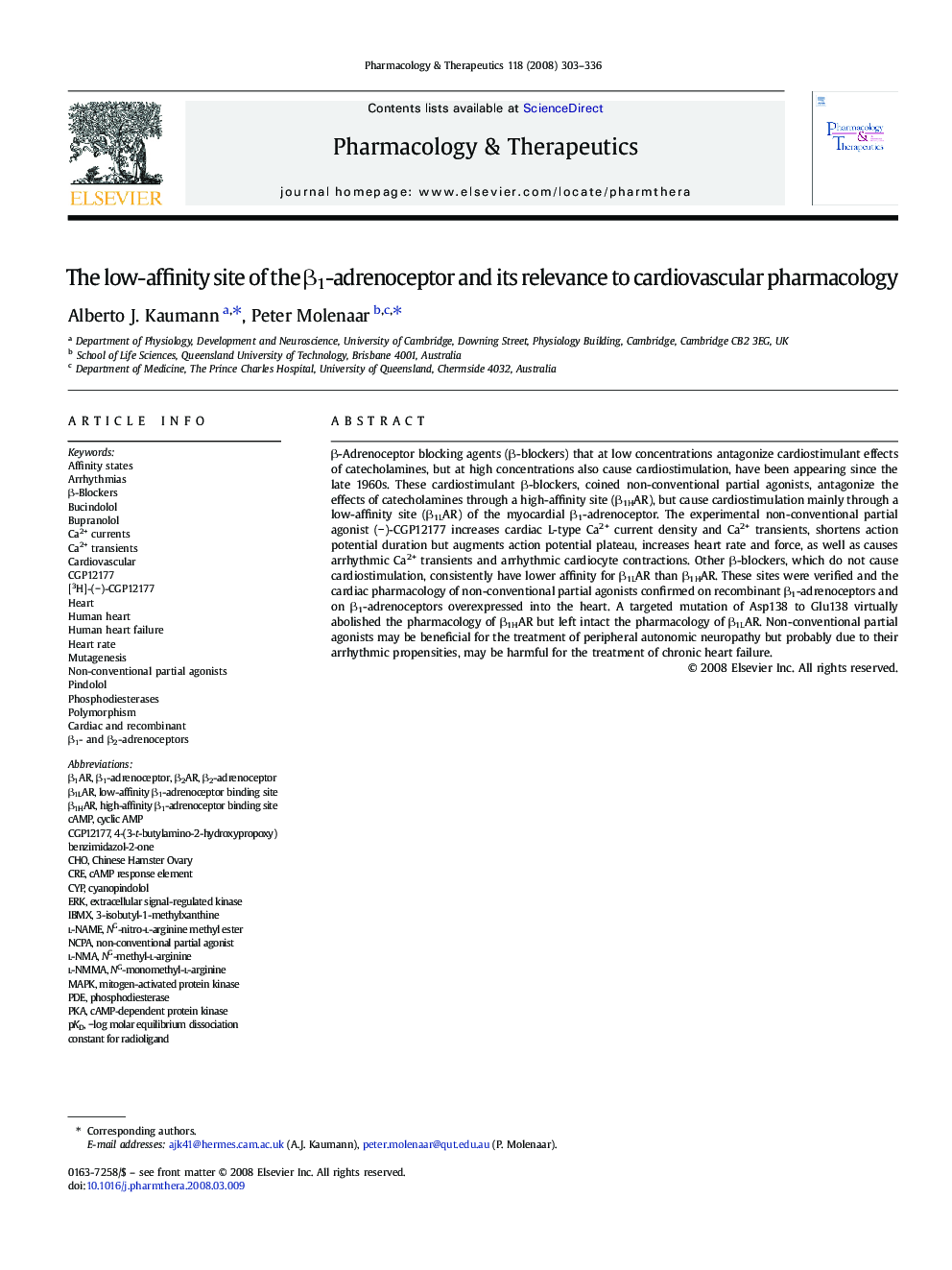| کد مقاله | کد نشریه | سال انتشار | مقاله انگلیسی | نسخه تمام متن |
|---|---|---|---|---|
| 2564108 | 1127603 | 2008 | 34 صفحه PDF | دانلود رایگان |

β-Adrenoceptor blocking agents (β-blockers) that at low concentrations antagonize cardiostimulant effects of catecholamines, but at high concentrations also cause cardiostimulation, have been appearing since the late 1960s. These cardiostimulant β-blockers, coined non-conventional partial agonists, antagonize the effects of catecholamines through a high-affinity site (β1HAR), but cause cardiostimulation mainly through a low-affinity site (β1LAR) of the myocardial β1-adrenoceptor. The experimental non-conventional partial agonist (−)-CGP12177 increases cardiac L-type Ca2+ current density and Ca2+ transients, shortens action potential duration but augments action potential plateau, increases heart rate and force, as well as causes arrhythmic Ca2+ transients and arrhythmic cardiocyte contractions. Other β-blockers, which do not cause cardiostimulation, consistently have lower affinity for β1LAR than β1HAR. These sites were verified and the cardiac pharmacology of non-conventional partial agonists confirmed on recombinant β1-adrenoceptors and on β1-adrenoceptors overexpressed into the heart. A targeted mutation of Asp138 to Glu138 virtually abolished the pharmacology of β1HAR but left intact the pharmacology of β1LAR. Non-conventional partial agonists may be beneficial for the treatment of peripheral autonomic neuropathy but probably due to their arrhythmic propensities, may be harmful for the treatment of chronic heart failure.
Journal: Pharmacology & Therapeutics - Volume 118, Issue 3, June 2008, Pages 303–336